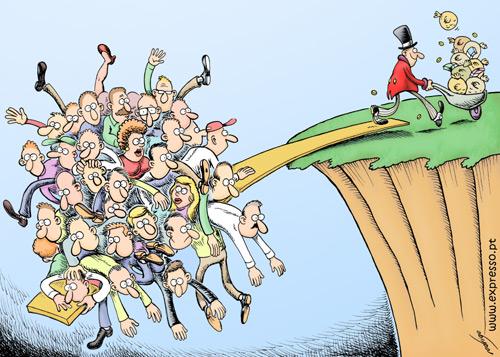I came across this peice in the New York Times and thought it raised some rather interesting points I wanted to share with you, my readers: ‘During the three decades after World War II, for example, incomes in the United States rose rapidly and at about the same rate — almost 3 percent a year — for people at all income levels. America had an economically vibrant middle class. Roads and bridges were well maintained, and impressive new infrastructure was being built. People were optimistic.
By contrast, during the last three decades the US economy has grown much more slowly, and our infrastructure has fallen into grave disrepair. Most troubling, all significant income growth has been concentrated at the very top of the income scale. The share of total income going to the top 1 percent of earners, which stood at 8.9 percent in 1976, rose to 23.5 percent by 2007, but during the same period, the average inflation-adjusted hourly wage declined by more than 7 percent.
Interactive Media: How Un-Equal Are We..??
Yet many economists are reluctant to confront rising income inequality directly, saying that whether this trend is good or bad requires a value judgment that is best left to philosophers. But that disclaimer rings hollow. [As purported social scientists, economists hold a moral obligation to postulate the social impacts that their prognostications will have on the economy. In point of fact,] economists who say we should relegate questions about inequality to philosophers often advocate policies – like tax cuts for the wealthy, and corporate tax loopholes – that increase inequality substantially. That greater inequality causes real harm is beyond doubt.
There is no persuasive evidence that greater inequality bolsters economic growth or enhances anyone’s well-being. Yes, the rich can now buy bigger mansions and host more expensive parties. But this appears to have made them no happier. And in our winner-take-all economy, one effect of the growing inequality has been to lure our most talented graduates to the largely unproductive chase for financial bonanzas on Wall Street.
In short, the economist’s cost-benefit approach — itself long an important arrow in the moral philosopher’s quiver — has much to say about the effects of rising inequality. We need not reach agreement on all philosophical principles of fairness to recognize that it has imposed considerable harm across the income scale without generating significant offsetting benefits.’ Read more from the NYTs, here…
Source: New York Times Image: expresso.pt
